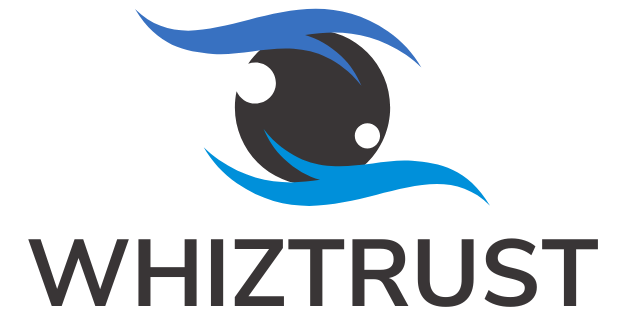In the fast-paced world of healthcare, managing supplies can feel like herding cats—chaotic and downright impossible. Enter healthcare supply chain software, the superhero of the medical realm. It swoops in to save the day, ensuring that hospitals and clinics have the right supplies at the right time, all while keeping costs in check. Who knew that logistics could be so thrilling?
Picture this: a hospital running smoothly, with nurses and doctors focused on patient care instead of hunting for missing band-aids. With the right software, healthcare organizations can streamline their processes, reduce waste, and even improve patient outcomes. It’s like having a magic wand that transforms supply chain headaches into seamless operations. So, buckle up as we dive into the world of healthcare supply chain software and discover how it’s revolutionizing the way medical facilities operate.
Table of Contents
ToggleOverview of Healthcare Supply Chain Software
Healthcare supply chain software plays a crucial role in enhancing operational efficiency within medical settings. This type of software offers functionalities that manage inventory, track supplies, and facilitate procurement, ensuring healthcare providers maintain optimal stock levels. Hospitals utilize these systems to streamline ordering processes, helping to reduce administrative burdens on staff.
Effective software solutions provide real-time data analytics and reporting, enabling healthcare facilities to forecast demand accurately. Facilities can make informed purchasing decisions based on historical usage patterns, which minimizes wastage and reduces costs. Such tools integrate seamlessly with existing electronic health record systems, enhancing data visibility across departments.
Quality healthcare supply chain software supports collaboration among stakeholders, including suppliers and healthcare providers. Users can easily communicate needs and monitor order statuses, promoting transparency throughout the supply chain. Implementing these systems leads to faster response times during supply shortages or emergencies.
The benefits extend beyond cost savings; improved inventory management directly impacts patient care. With the right supplies readily available, healthcare professionals can deliver timely interventions, boosting overall patient outcomes.
Selecting the right healthcare supply chain software involves evaluating features, scalability, and vendor support. Facilities should prioritize solutions that offer user-friendly interfaces and robust customer service to ensure seamless adoption and integration. Investing in software that meets specific operational needs ultimately leads to a more effective and responsive healthcare supply chain.
Key Features of Healthcare Supply Chain Software

Healthcare supply chain software includes multiple features designed to optimize operational efficiency. Highlighting key functionalities allows healthcare providers to maintain a steady flow of supplies necessary for patient care.
Inventory Management
Effective inventory management serves as a cornerstone of healthcare supply chain software. This feature enables real-time tracking of supplies, ensuring accurate inventory levels. Users can automate reorder processes, minimizing the risk of stockouts. Automated alerts notify staff when items approach minimum thresholds, allowing proactive replenishment. Additionally, tracking expiry dates helps avoid waste from expired supplies. Integration with other systems enhances visibility across different departments, facilitating a streamlined approach to managing inventory.
Order Processing
Order processing functionality simplifies the procurement process within healthcare organizations. Software automates purchase order creation, reducing manual errors and speeding up operations. Users gain access to predefined templates that streamline the ordering process, allowing for quicker turnaround times. Tracking order statuses in real-time provides transparency and updates on expected delivery dates. Additionally, this feature enhances compliance with purchasing regulations by maintaining records of orders placed. Overall, efficient order processing minimizes delays and supports uninterrupted patient care.
Supplier Management
Supplier management is crucial for cultivating strong relationships within the healthcare supply chain. This feature allows organizations to evaluate supplier performance through metrics such as delivery times and quality of goods. Users can easily compare suppliers based on their historical data, enabling informed decision-making when selecting vendors. Regular assessments identify opportunities for improvement, fostering collaboration and communication with partners. Furthermore, effective supplier management reduces disruptions in the supply chain, contributing to the overall efficiency of healthcare operations.
Benefits of Implementing Healthcare Supply Chain Software
Healthcare supply chain software offers numerous advantages, significantly impacting operational efficiency and patient outcomes.
Cost Reduction
Implementing this software leads to substantial cost savings for healthcare providers. By optimizing inventory levels, organizations minimize excess stock and reduce waste. Real-time data analytics support informed purchasing decisions, which help avoid unnecessary expenditures. Furthermore, automating procurement processes decreases administrative overheads. Efficient supplier management keeps costs in check, enabling better negotiation opportunities with vendors. Overall, reduced operational costs contribute to healthier financial performance within healthcare facilities.
Improved Efficiency
Operational efficiency sees marked improvements with healthcare supply chain software. Enhanced inventory management allows seamless tracking of supplies, which minimizes stockouts. Automated procurement workflows streamline order processing, ensuring timely deliveries and reducing delays. Increased collaboration among stakeholders fosters better communication, further accelerating supply chain processes. Staff members spend less time on logistics, allowing them to focus on core tasks. Greater efficiency results in smoother operations and the ability to respond swiftly to changing demands.
Enhanced Patient Care
Patient care quality improves significantly through the use of healthcare supply chain software. By maintaining optimal stock levels, medical facilities ensure necessary supplies are always available for patient treatment. Timely access to medications and equipment supports better clinical outcomes. Enhanced visibility in the supply chain allows healthcare providers to respond quickly to urgent needs, particularly during emergencies. When logistical burdens decrease, healthcare professionals can devote more time to patient interaction and care. Ultimately, prioritizing patient well-being becomes easier, leading to higher satisfaction rates.
Challenges in Healthcare Supply Chain Management
Healthcare supply chain management faces numerous challenges that can hinder efficiency and impact patient care. Addressing these obstacles is essential for the effective operation of healthcare organizations.
Integration Issues
Integration issues arise when healthcare supply chain software struggles to connect with existing systems. These challenges often stem from different software architectures, leading to data silos. Hospitals and clinics may find themselves unable to share critical information between departments. Disparate systems complicate order management and tracking efforts. Moreover, staff may experience delays in accessing necessary inventory data, resulting in inefficient stock levels. Resolution requires ensuring compatibility with legacy systems and standardizing data formats, which can involve significant time and financial investments. Organizations must prioritize seamless integration to optimize supply chain operations.
Data Security Concerns
Data security concerns pose significant risks within healthcare supply chain management. The sensitivity of patient information makes these systems prime targets for cyberattacks. Organizations face the constant challenge of safeguarding confidential data against breaches. Tight regulations, such as HIPAA, mandate the protection of patient records, adding complexity to supply chain processes. Additionally, unauthorized access to supply chain data can disrupt operations and lead to supply shortages. Regular security assessments and the implementation of robust cybersecurity measures become vital in mitigating these risks. Prioritizing data security strengthens trust and ensures compliance in supply chain management.
Future Trends in Healthcare Supply Chain Software
Advancements in healthcare supply chain software reflect a rapidly evolving landscape. Predictive analytics rise significantly, allowing organizations to anticipate demand fluctuations based on historical data patterns. Enhanced visibility into supply chains matters more than ever. Real-time tracking systems emerge as essential tools, enabling stakeholders to monitor inventory levels and manage orders effectively.
Artificial intelligence integration plays a crucial role in streamlining operations. AI-driven algorithms analyze data to optimize inventory management, resulting in reduced wastage and improved procurement processes. Machine learning adoption increases, enabling software solutions to adapt and refine strategies over time. Data-driven decision-making becomes a standard practice, empowering healthcare providers to make informed choices.
Collaboration platforms aim to strengthen communication among team members and suppliers. By fostering real-time discussions, these platforms minimize miscommunication and enhance response times during critical supply shortages. Cloud-based systems gain traction, offering flexible access to data and resources across multiple locations. Scalability becomes a defining factor for organizations seeking growth in a dynamic environment.
Compliance with regulations continues to shape software development. Increased focus on data protection addresses growing cybersecurity concerns. Robust security features safeguard sensitive patient information against potential threats, ensuring compliance with regulations such as HIPAA.
Sustainability initiatives influence software features significantly. Healthcare organizations increasingly prioritize eco-friendly practices, driving the demand for solutions that promote responsible sourcing and reduced environmental impact. As the sector embraces digital transformation, telehealth integration within supply chain software emerges as a vital innovation. Enhancing patient experiences through seamless interoperability between care and supply chain processes becomes a growing expectation.
These trends illustrate that healthcare supply chain software not only supports operational efficiency but also adapts to the industry’s evolving needs.
Healthcare supply chain software stands as a critical asset for medical organizations striving for efficiency and effectiveness. By streamlining processes and enhancing inventory management, it allows healthcare providers to focus on what truly matters—patient care.
The integration of advanced technologies like predictive analytics and artificial intelligence further positions this software as a forward-thinking solution. As the industry continues to evolve, adopting such tools will be essential for maintaining a responsive and resilient supply chain.
Investing in the right healthcare supply chain software not only improves operational performance but also contributes to better patient outcomes, making it a vital component in modern healthcare management.


